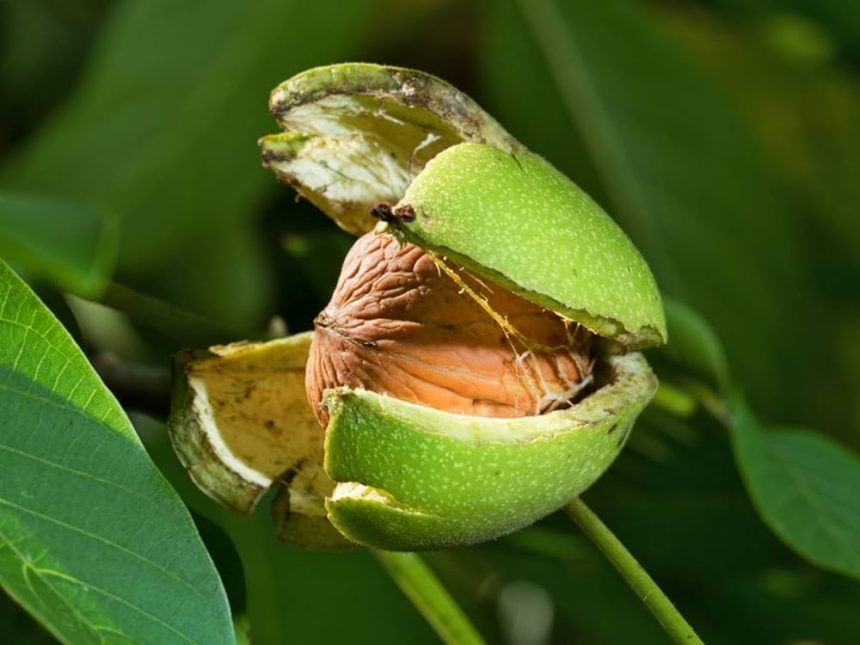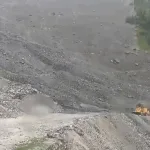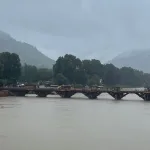Kashmir’s walnut industry, renowned for producing over 90 percent of India’s walnuts, faces significant challenges despite its rich legacy and natural advantages.
Known for their high oil content and organic quality, Kashmiri walnuts are prized globally, yet farmers struggle with low returns due to outdated processing methods, fluctuating market prices, and competition from cheaper imports.
The lack of modern infrastructure and government support has further strained the industry. With declining interest from growers, experts stress the need for intervention, including high-density walnut trees, advanced cultivation techniques, and better market access to revive this once-thriving sector.
The walnuts are primarily cultivated in regions like Kupwara, Shopian, Baramulla, Budgam, Srinagar, Anantnag, and other hilly areas of Kashmir. The four main varieties include: Wonth, Kagzi, Burzil, and Kaghazi, each known for their distinct size, shell thickness, and flavor.
The industry not only provides livelihoods to farmers but also supports various related industries like processing, packaging, and export. Kashmiri walnuts have a strong demand both domestically and internationally, especially in markets like Europe and the Middle East.
However, the industry faces challenges, including outdated farming techniques, limited processing facilities, and fluctuating market prices. Infrastructure deficits and changing climate patterns have exacerbated these issues. Competition from cheaper, lower-quality walnuts from other regions, such as California and China, has also affected the market.
According to growers, over the past six years, the walnut production rates have not met their expectations, considering the significant effort and hard work invested by farmers leading up to the harvest.
President Kashmir Walnut Growers Association, Haji Bahadur Khan said there is a reduced demand of Kashmiri walnuts in Indian markets which has also hit the growers. He said the government has slashed the import duty and GST has also affected the farmers and dealers.
“Walnuts exported from California, China and Chile look good. But the local produce is natural and farmers don’t even use pesticides and manure,” he said.
Khan alleged that the horticulture department has not been serious over the promotion and marketing of the walnut industry which could have further pushed farmers and their produce.
“The walnut farmers are worried. They spent more on harvesting of crop and it is laborious. Whatever they do they do it on their own there is no government intervention,” he said.
Haji said that there should be collaboration with walnut stakeholders in the national markets which can be helpful for the growers and farmers.“There are 60 percent of the walnut farmers who live in peripheries or rural areas and they do not get the exact prices of the produce,” he said.
September is the peak season for harvest of walnuts in the valley and growers say there is low demand for the walnut due to the heavy exports of walnuts from the foreign countries.
Khan emphasized the need for intervention from the horticulture department by providing high-density walnut trees and offering training to farmers on the business aspects.
The President Kashmir Walnut Growers Association said although some high density nurseries were established , these don’t cater to the huge population of walnut farmers.
“Ten years back the walnut was exported but now the trade has been affected and it has left the farmers worried and they have also lost interest in it,” he said.
Experts noted that the majority of walnut trees in Kashmir are traditional varieties, with little to no introduction of newer, high-yielding varieties. They emphasized the need for modern cultivars to improve productivity and meet growing market demands, as the region has yet to benefit from advancements in walnut breeding and cultivation techniques.
Mohd Subhan, a farmer from Baramulla said before ten years the villages would remain abuzz with the walnut businessmen but over the years they do not prefer to go to villages due to slashed prices.
“Our crop is natural and organic but despite that we do not get the expected prices. The harvesting stage is laborious and we hardly manage the expenses,” he said.
The farmer explained that due to low profits, many still rely on traditional methods for processing walnuts, which are both labour-intensive and exhausting. He emphasized the need for intervention to revitalize the industry.
A senior officer of the Horticulture Department said the department has been actively dedicated to advance the industry by implementing various interventions.
“Under HADP, we will be importing Chandlier plant material which could be pruned as well. These high-density plants would be planted 30 in one kanal of land. Our traditional varieties are not grafted and walnuts do not match in size,” he said.
The official said that the department has introduced walnut nurseries in several parts of Kashmir where they would now grow grafted plant material.
The introduction of hi-tech poly houses is a positive step towards increasing walnut production in the region. He said poly houses provide a controlled environment for plants, protecting them from pests, diseases, and extreme weather conditions.
“When the farmers get quality planting material or plants we will get good quality material. This is a step in this direction if farmers want to improve themselves and if farmers want to improve their walnut orchards,” he said.
Experts said that walnut business has a very good scope in Kashmir with a potential to go in the national and international markets and can fetch better prices.
Horticulture officials also informed that the hi-tech poly houses have the latest technology like controlling temperature and giving a suitable environment to the crop.
“This can lead to higher yields and better quality produce of walnuts as walnuts is an important cash crop in Kashmir and increasing production through the use of technology can have a positive impact on the local economy,” they said.
They said in spite of growing walnuts in open, it is helpful to grow inside. During snowfall also we can work inside these houses and the temperature can also be adjusted as per need.
Walnut is one of the important sources of income. As per figures of the Horticulture Department, the area under cultivation of walnut is 46,197 ha. The average annual production of walnuts is 182,659 metric tonnes.
Technical challenges for Kashmir’s walnut industry
Heavy imports reduce demand of Kashmiri walnuts in Indian markets

Leave a Comment Leave a Comment







